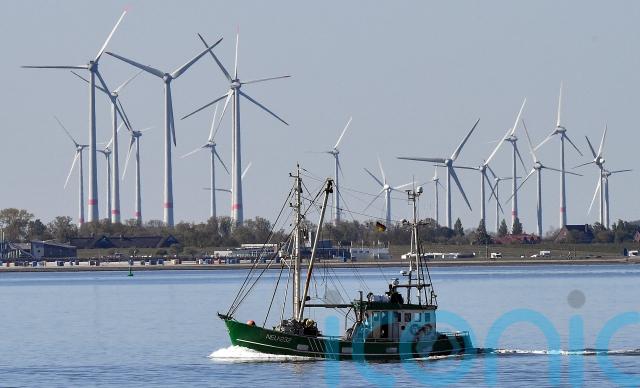
Denmark will increase its planned offshore wind capacity in the Baltic Sea to three gigawatts and hook it up to the German grid, a step towards weaning Europe off its reliance on Russian gas.
When established in 2030, it should be able to supply electricity to up to 4.5 million European homes.
A 470-kilometre (292-mile) undersea cable will run via the Danish Baltic Sea island of Bornholm to northern Germany, enabling the power to be sent directly to the German electricity grid and on to the rest of Europe.
At present, Denmark and Germany have respective offshore wind energy capacities of 1.5 gigawatts and one gigawatt.
German economy and climate minister Robert Habeck called it “a flagship project” and added that “with such projects among European partners, we achieve two key goals at the same time: European energy security and climate neutrality”.

The deal was announced on Monday in Copenhagen.
Denmark’s energy minister Dan Jorgensen added that “international co-operation is more urgent than ever before” to further reduce greenhouse gas emissions and to make Europe independent from Russian gas and oil.
On Friday, Germany’s foreign minister said estimates show that wind from the Baltic Sea can produce “more than twice the installed capacity of all German coal-fired power stations”.
The countries around the Baltic Sea “need to set the sails, work together and set course towards making our region more sustainable, more resilient and more secure”, Annalena Baerbock said.
German Chancellor Olaf Scholz has said Germany remains committed to ending its greenhouse gas emissions by 2045, the earliest of any major industrialised nation.
To meet the goal, his government has said it will close coal-fired power plants that were reactivated due to the war in Ukraine, end imports of Russian oil and coal this year and aim to stop using Russian gas within the next two years.
Monday’s announcement comes a day before a meeting in Copenhagen to discuss ways “to make the Baltic Sea region free of Russian energy and at the same time pave the way for a significant green transition”, according to the Danish government.
Those expected to attend include the president of the European Union’s executive commission, Lithuania’s president, the prime ministers of Poland, Latvia, Estonia, Finland and Denmark, and several energy ministers.
Subscribe or register today to discover more from DonegalLive.ie
Buy the e-paper of the Donegal Democrat, Donegal People's Press, Donegal Post and Inish Times here for instant access to Donegal's premier news titles.
Keep up with the latest news from Donegal with our daily newsletter featuring the most important stories of the day delivered to your inbox every evening at 5pm.